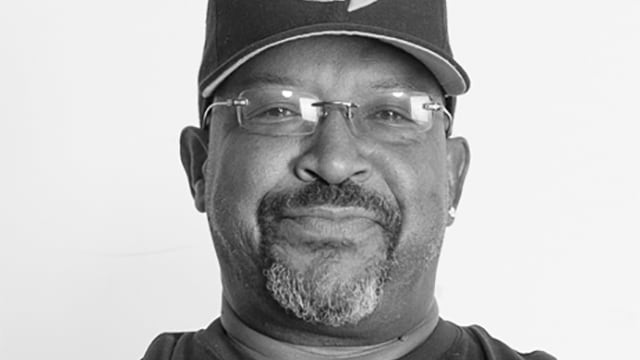It sounds like a cliche, but it's not. Not from Ralph Greene, the man who signed Tiger, Lebron and Kobe to Nike.
Understanding the relationship pattern, Greene has said, is the secret to the sports business.
During a stellar career highlighted by 21 years at Nike, Greene sparked the "international wave" including the signing of Yao Ming, Tony Parker and Dirk Nowitzki to Nike contracts. Greene will be sharing his insights into sports and technology at next month's TechfestNW.
Greene was an early adopter at Nike. In 2006, he cemented a partnership with Hudl, a Nebraska company that built a platform for athletes and coaches to upload and analyze videos of gameplay. The marriage led to a video analysis and social networking app called Hudl Combine which allowed players to generate scores and submit them to get verified feedback from Nike.
What made it successful, Greene says, was that the app made available "that very same tech for the kids' social space. For a kid to be able to make his own highlight reel."
An app that made coaches happy but not young athletes—or vice versa—would not have had the same impact. "This thing was able to kind of do both," Greene says, "and it took off."
Greene, a former football player who attended Stanford, and who just bought an Apple watch with an ECG, makes quite an impression. Now in his 50s, he still bench presses 225. He consults, volunteers, mentors and coaches, helped start Oregon Sports Angels and redesign the "Power T" logo of Tigard High School.
In everything he does, he centralizes aspiration, the "high-end athlete in all of us," and overcoming adversity: "When someone sets a goal, goes through hardship and achieves it, I like that."
Through his Columbia Consulting Group, Greene invests and consults with sports tech companies.
One client is Orreco, an Irish company which uses hematology to "develop a biomarker profile," to optimize performance and maximize player readiness. It's an idea that could help predict and reduce injuries for clients like the Dallas Mavericks, though it also raises some ethical issues. "Blood is a really sensitive subject matter," Greene says. "Who should have that data? Is the team better off, or is the player? Those are discussions that have to be worked out."
Another of his clients, Seattle-based Vicis, makes a high-tech "soft" helmet with a polymer that regains shape, part of an effort to address head trauma and Chronic Traumatic Encepelopathy. It's currently worn by 1,000 NFL players, he says. "It is contributing to the improvement," Greene says. "Does it solve the problem? No."
Greene, who is African American, says he gets what's driving today's "techlash." He recalls going to a Bay Area tech conference full of white guys where the lack of diversity was "as obvious as the nose on your face."
"You got to try to work to beat that down," he says. "Absolutely, there is a call out not only in the tech bro culture, but also bro culture."
Yet, in a nod to tech's disruptive nature, Greene is sympathetic to the idea that, in order to innovate, tech leaders have to stay focused on what works, not what he calls "bad actors … wanting to do dirt."
"You've got to aspire, you've got to be able to think of the best first, as opposed to the worst first, or else you'd never really create anything."
Greene will elaborate at this year's TechfestNW.
